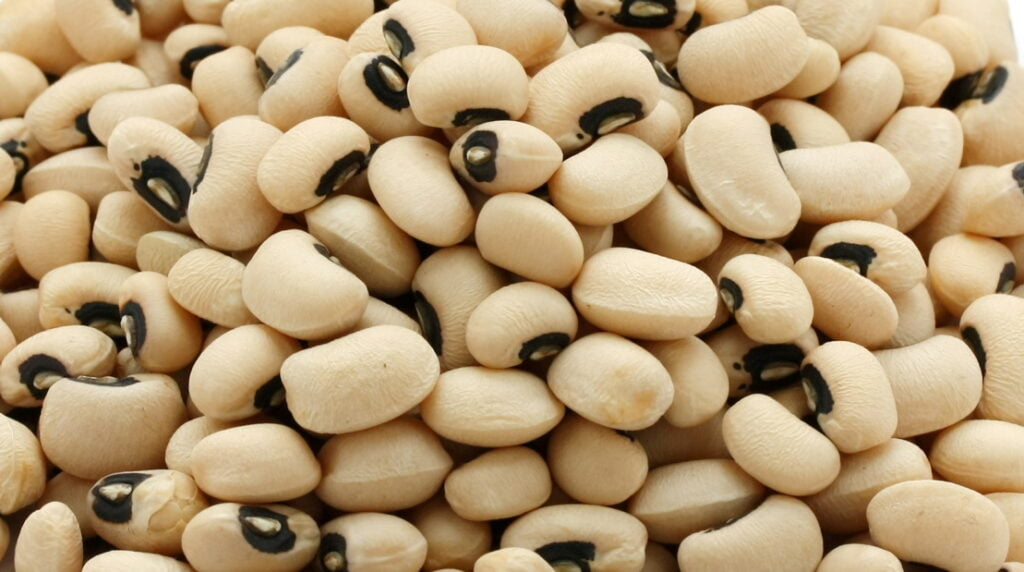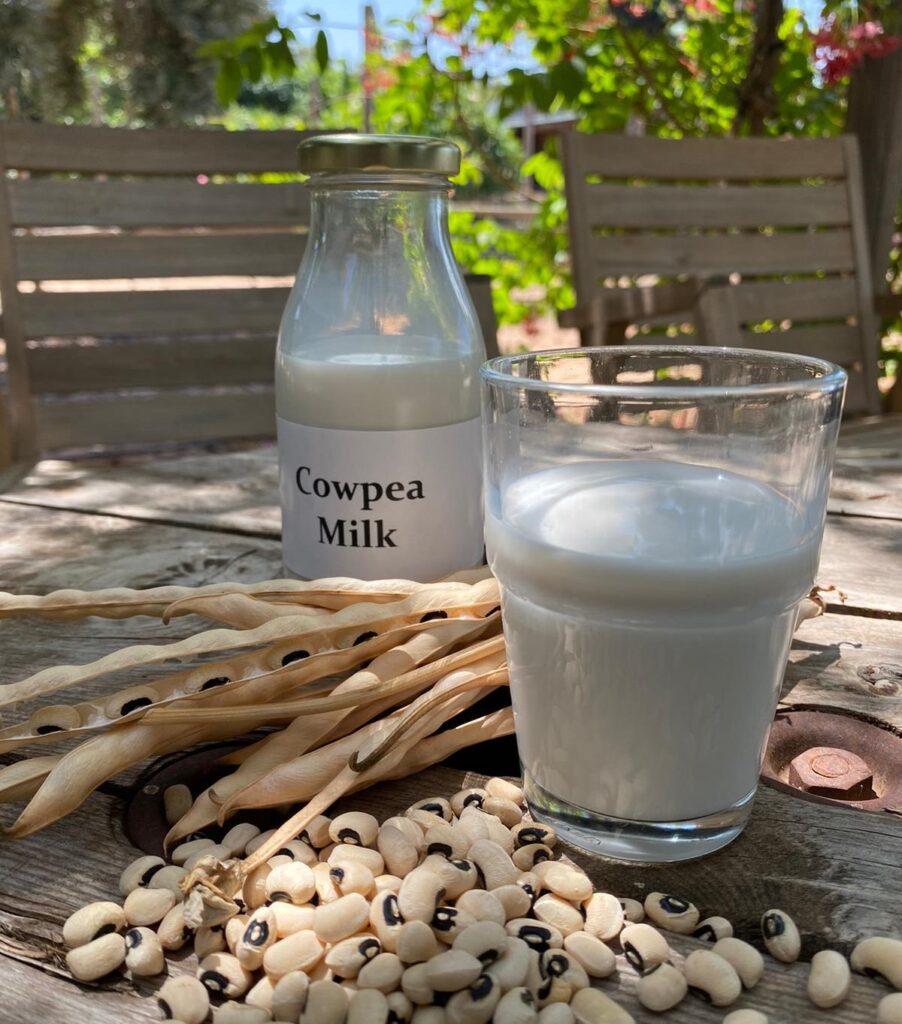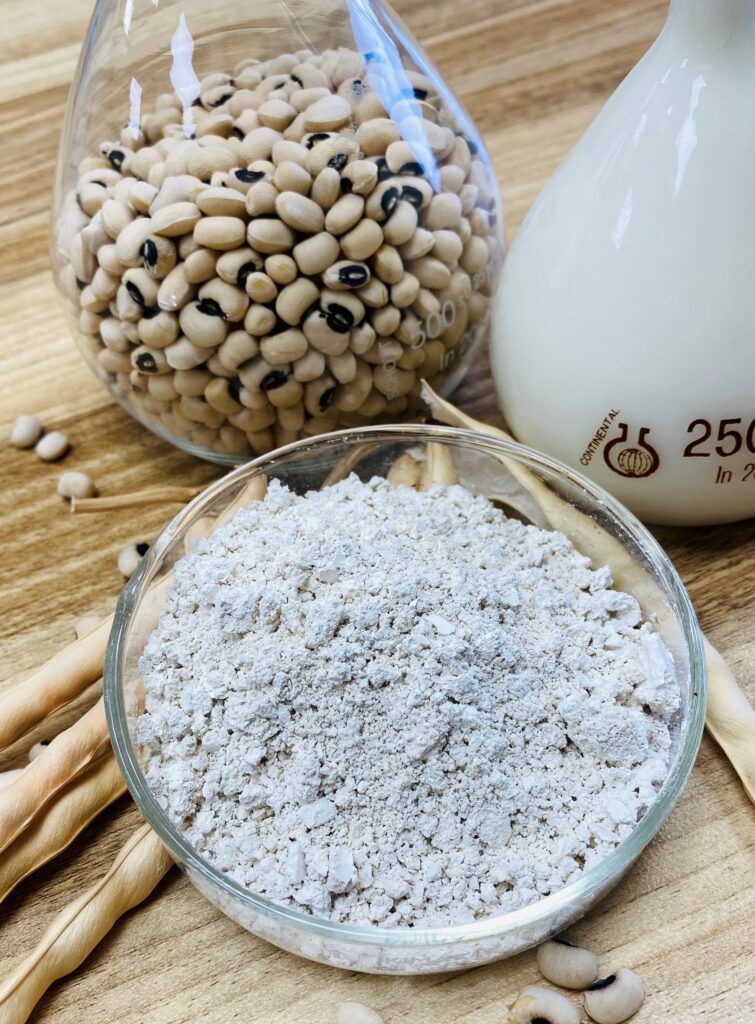Israeli startup Better Pulse is harnessing the power of the cowpea, becoming the first company to use it as an entirely new dairy milk alternative.
Technically a bean and also known as the black-eyed pea, cowpea has a strong spiritual symbolism in many cultures.
For people from West Africa, it is a traditional symbol of fertility and a source of protection from the evil eye. It is eaten by many in the American south during New Year celebrations – and also has resonance for the Jewish New Year, when many Jews, especially those from Middle Eastern countries, eat it with the hope that it will bring abundance, wealth and fertility.
But aside from its symbolic properties, the cowpea is an incredibly resilient crop and nutritious food.

Native to the vast Sahel region of Africa, the cowpea requires little water and fertilizer to grow, has a high heat tolerance and can be used in crop rotation, preparing the soil for other crops.
“It’s non allergenic, it’s non-GMO. It contains almost all of the essential amino acids,” Better Pulse CEO Alon Karpol tells NoCamels.
These qualities make it a sustainable alternative to dairy milk, which takes a heavy environmental toll. In fact, according to a University of Oxford study, producing a glass of dairy milk results in almost three times the greenhouse gas emissions of any plant-based milk production.
Environmental concerns are one of the reasons why plant-based milk alternatives are a growing market. According to international market research company Grand View Research, the global dairy alternatives market size was valued at $29.18 billion in 2023 and is expected to grow annually by 12.6 percent between 2024 and 2030.
Plant-based milks are produced by creating a powder from whichever protein is the source, with soy, oat, almond and rice being some of the most popular. The powder is mixed with water, oil and sometimes sugar and other flavorings, and then reconstituted for use.
There is no consensus by experts, however, on which plant-based milk is the best overall. Some look for nutritional value, while others favor one that most resembles dairy milk, has the best taste or uses the least resources.

According to Karpol, the cowpea milk emulsifies and foams and is white in color like dairy milk and does not leave a strong taste of bean or grassiness – an issue with some milk alternatives. And the team at Better Pulse believe that it makes an ideal source for alternative milk, certain that consumers will agree.
The idea to use the cowpea for plant-based milk was born when Karpol was approached by his longtime friend Ido Margalit, with whom he worked many years ago at a pharmaceutical company.
After they parted ways professionally, Karpol went on to pursue a career in biochemistry research, while Margalit became an entrepreneur, focusing on agricultural technology. He ultimately co-founded the company BetterSeeds, which has re-coded the cowpea’s genetic makeup to make it suitable for mechanized harvesting.
Over a beer about two years ago, Margalit told Karpol about the cowpea, highlighting its nutritional value and resilience in the face of climate change. Karpol recalls Margalit quizzing him about the other potential uses for the bean.
He dove in and learned about its nutritious properties, finding it hard to believe that it wasn’t already being used as an alternative to dairy milk.
The bean boasts a list of other positive attributes, including its high amino acid content and exclusion as one of the eight major allergens.
Sign up for our free weekly newsletter
Subscribe“It’s the staple food for many cultures,” Karpol says. “I’m so surprised to see there are no other companies using it [in this way].”
Better Pulse plans to initially introduce the cowpea to the market as a protein source for plant-based milk alternatives. But it also has bigger dreams for the bean.
Working on a business to business (B2B) model, Better Pulse plans to market cowpea protein to food companies to be reformulated into non-dairy yogurt, coffee creamers and more, as well as a dairy milk alternative.

It also has a license to use CRISPR technology – a powerful gene-editing tool that allows plant DNA to be modified with unprecedented precision and ease.
“This is where the fun begins for me,” Karpol says of the technology.
Better Pulse intends to use CRISPR to edit the protein inside the cowpea to make it even more nutritious, by removing the bean’s phytic acid, a benign compound that inhibits nutritional absorption.
Crucially, CRISPR technology is considered to be non-GMO in most parts of the world, including in the United States and Israel, even though is currently seen as such in Europe.
Until recently, the Better Pulse team had raised $250,000 from their own personal network. They are now in the pre-seed round, and have so far raised $100,000 from an angel investor and received a $400,000 grant from the Israel Innovation Authority for their CRISPR work. The target of the round is $1 million, Karpol says.
Like many Israeli startups following the mass terror attack of October 7 and Israel’s subsequent and ongoing war, the company has faced challenges. Its food technologist, David Etienne, has spent six of the last 11 months serving in Gaza as a reserve soldier in the Israel Defense Forces.
But, like the company’s beloved protein source, Better Pulse has proven to be resilient. And Etienne has used his breaks from reserve duty to continue his work with the cowpea.
“We’ve found ways to overcome [the challenges],” Karpol explains. “We are pushing hard.”
The company has just completed its lab tests and pilot, and is confident it can scale it up very quickly and even start selling that within the next three to four months.
Karpol says the cowpea milk has passed several taste tests, even by the pickiest of critics – his own children.
“And if they think it’s good,” he says, “it’s good!”
Related posts

Harnessing Our Own Bodies For Side Effect-Free Weight Loss

Israeli Device Is New, Drug-Free Solution For Men Coping With ED





Facebook comments